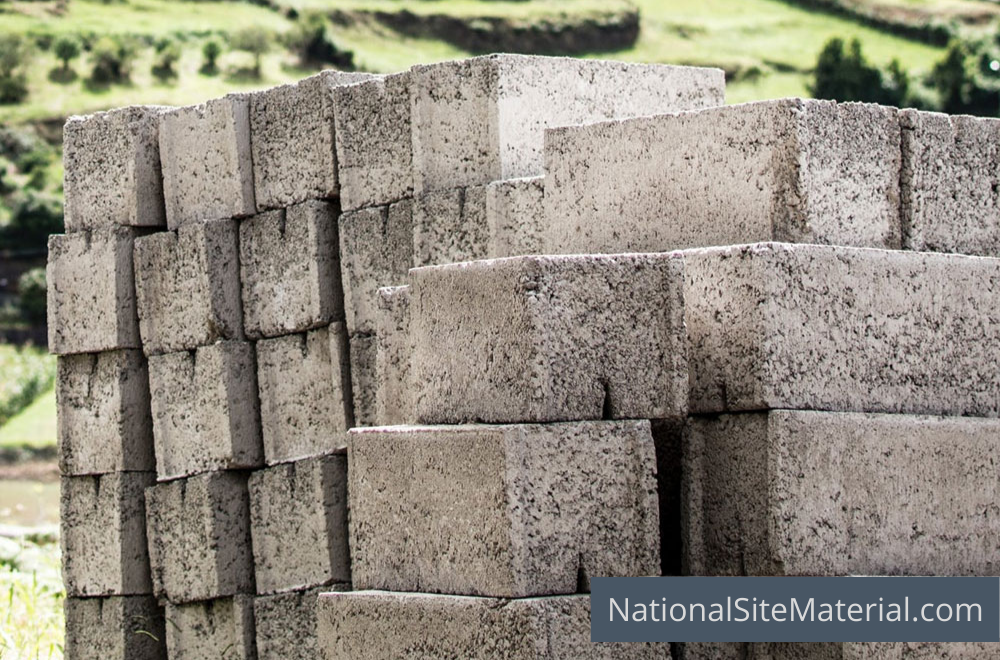
Concrete blocks were first used in the construction of homes in the United States around 1837 and became a popular material for homes in the early 1900s through 1920. The use of concrete blocks offered an alternative to stone and wood that utilized common, inexpensive materials. In addition to cost saving, concrete blocks were advertised to be “fireproof, vermin proof, and weatherproof.”
Many of the characteristics that made concrete blocks an attractive material in the 1800s and 1900s are still valued today. Thanks to advancements in design and manufacturing processes, you can find precast blocks available in all shapes and sizes and suitable for a variety of construction, landscaping and home projects.
Precast Block Varieties
Available in a variety of shapes, sizes and compositions, the options for precast concrete blocks is seemingly endless. So, which type of block is best for your next project?
While shapes and sizes vary, the composition of the materials will determine most of it’s function and characteristics. To help pick the best block for your project, we have put together a quick comparison of the most common compositions for concrete blocks.
Concrete Blocks
Made from a mixture of powdered portland cement, water, sand, and gravel, concrete blocks offer a high compression strength with a smoother surface texture. In general, individual concrete blocks weigh between 38 and 43 pounds. Concrete blocks are made using mixture higher in sand and lower in gravel and water. This mixture produces a light gray block.
Cinder Blocks
In contract, cinder blocks are made using granulated coal or volcanic cinders in place of sand and gravel. These materials result in a dark gray block with a coarser surface texture. Cinder blocks are generally used for sound-dampening and higher thermal insulation. Cinder blocks also weigh less than concrete blocks with a standard block weighing in at 26 to 33 pounds.
Lightweight Concrete
With lightweight concrete blocks, expanded clay, shale or slate replace sand and gravel in the concrete mixture. Blast furnace slag and natural volcanic materials like pumice and scoria may also be used. Lightweight concrete blocks typically weigh 22 to 28 pounds. These blocks are often used for non-load-bearing walls and partitions.
Order Precast Concrete Blocks Today
National Site Materials offers a two online order forms to help make ordering quick and easy. Contractors can use our Contractor Order Form while residential customers can use the Homeowners Order Form. With either form, all you need to do is tell us what materials you need along with when and where you need them delivered. Our order fulfillment team will handle the rest.
Have questions about your order? Contact us online or call us at (888) 237-2746 and we will work with you to find the materials you need for your next project.
